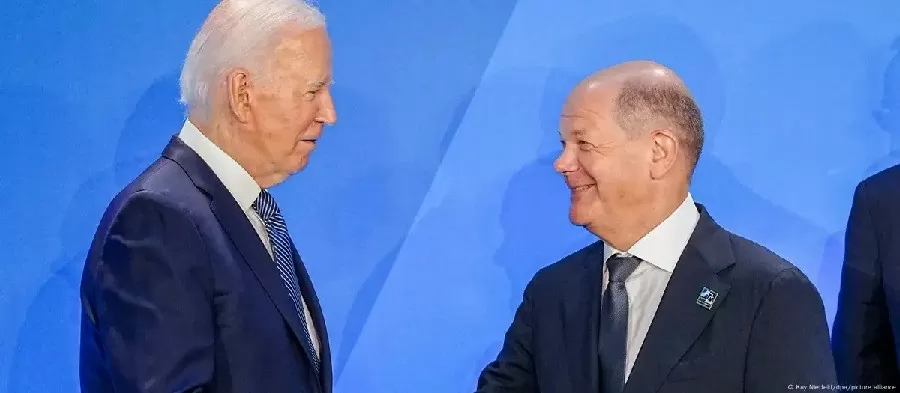 |
| US President Joe Biden (left) and German Chancellor Olaf Scholz meet at the NATO Summit in Washington DC on July 11. (Source: DPA) |
In a joint statement, Washington and Berlin said the phased deployment of US missiles in Germany was to prepare for the long-term deployment of missiles, including SM-6, Tomahawk and hypersonic weapons under development that “have a significantly longer range” than the EU’s current capabilities, Reuters news agency reported.
This move marks the return of US cruise missiles to Germany after a 20-year absence. Both the Tomahawk cruise missiles and the SM-6 air defense missiles are manufactured by the US defense corporation Raytheon.
Previously, ground-launched missiles with a range of 500 km-5,500 km were banned under the Intermediate-Range Nuclear Forces (INF) Treaty signed by the US and the Soviet Union in 1987. In 2019, the US decided to withdraw from the INF on the grounds that Russia violated the treaty, which Moscow denied. Russia later also announced the termination of the treaty.
The move has drawn criticism even from within German Chancellor Olaf Scholz's Social Democratic Party (SPD), but the leader has defended and praised the decision.
Speaking to reporters at the NATO Summit in Washington DC, Mr. Scholz said that the deployment "is a deterrent and ensures peace, and this is a necessary and important decision at the right time."
On the Russian side, Interfax news agency quoted Deputy Foreign Minister Sergei Ryabkov as declaring that the country would "not hesitate" to take military measures in response to "this new game".
According to Mr. Ryabkov, the US move is an escalation aimed at threatening Russia.
Meanwhile, Russian Ambassador to the US Anatoly Antonov commented that Washington is increasing the risk of a missile race, forgetting that this is the "trigger" for an uncontrolled escalation in the already tense relationship between Russia and NATO.
Washington's decision "is a blow to Moscow's commitment to halt the deployment of ground-based intermediate-range nuclear weapons," the diplomat said, warning Germany to understand that "those missiles will be in Russia's crosshairs."
The US decision would be a serious mistake by Washington, a direct threat to international security and strategic stability.
Last month, Russian President Vladimir Putin said it was necessary to continue producing short- and medium-range nuclear-capable missiles and then consider where to deploy them, after the US decided to deploy missiles in Europe and Asia.



![[Photo] Fireworks light up the sky of Ho Chi Minh City 50 years after Liberation Day](https://vphoto.vietnam.vn/thumb/1200x675/vietnam/resource/IMAGE/2025/4/30/8efd6e5cb4e147b4897305b65eb00c6f)


![[Photo] Feast your eyes on images of parades and marching groups seen from above](https://vphoto.vietnam.vn/thumb/1200x675/vietnam/resource/IMAGE/2025/4/30/3525302266124e69819126aa93c41092)

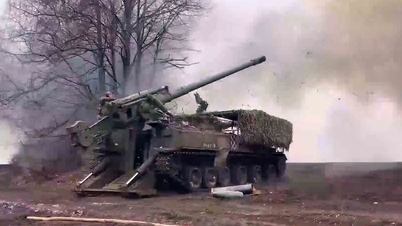

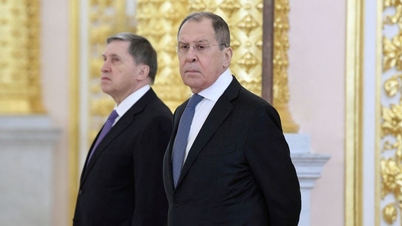






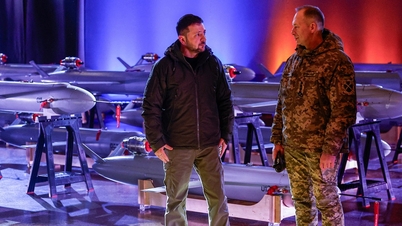














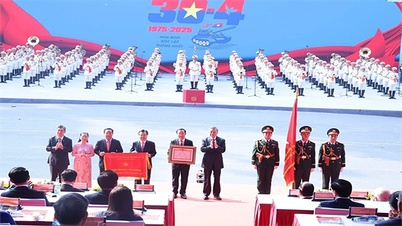






































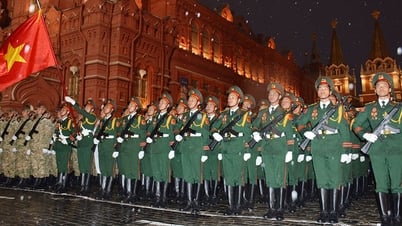





























Comment (0)